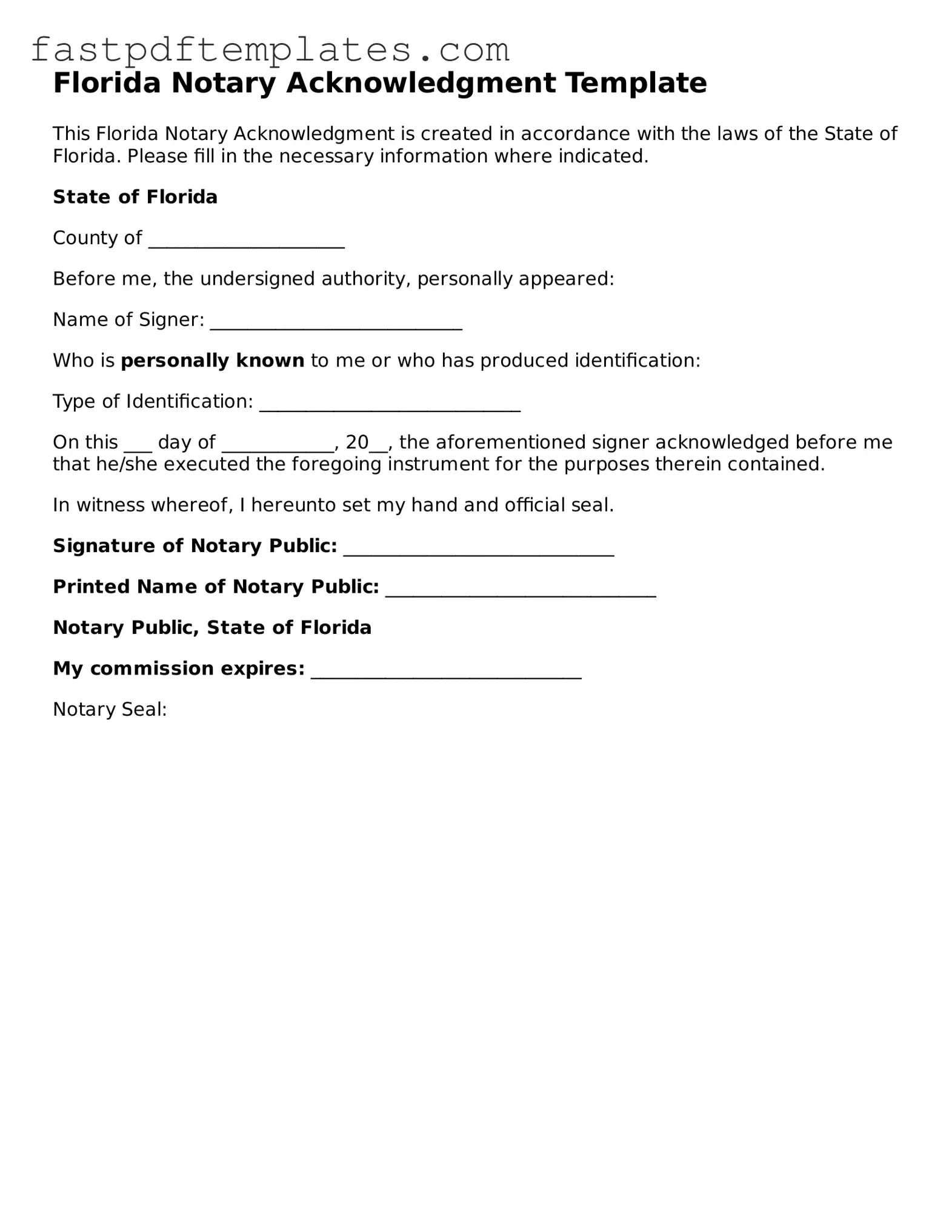Attorney-Approved Florida Notary Acknowledgement Document
The Florida Notary Acknowledgement form is a legal document used to verify the identity of a signer and confirm that they willingly signed a document. This form serves an essential role in various legal transactions, ensuring that agreements are valid and enforceable. Understanding its purpose and requirements can help individuals navigate the notarization process effectively.
Access Document

Attorney-Approved Florida Notary Acknowledgement Document
Access Document
Your form still needs completion
Complete your Notary Acknowledgement online and download the final PDF.
Access Document
or
Click for PDF Form
